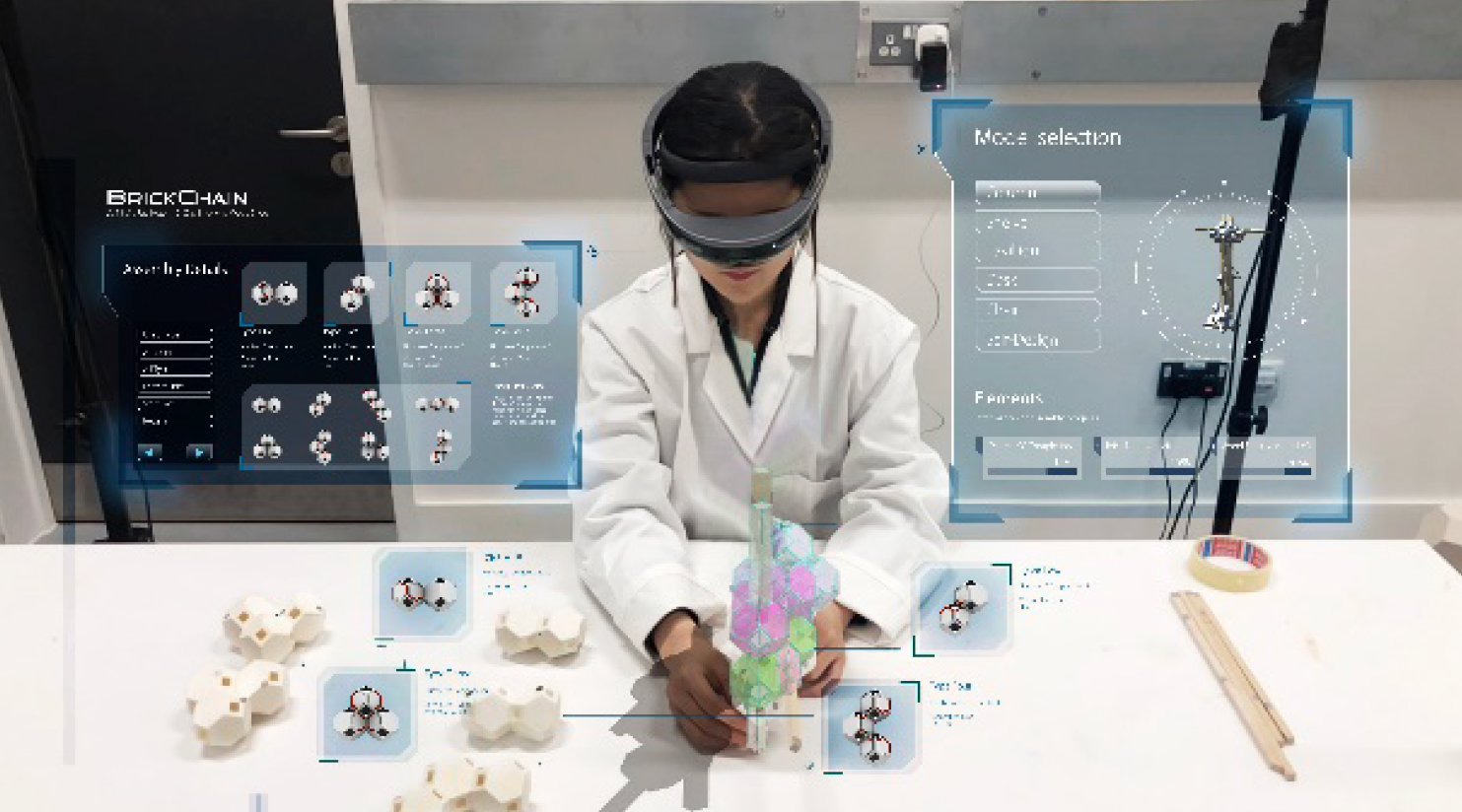Democratised Making: Skills Enhancing Through Extended Realities
Abstract
Throughout history, technology has had a crucial influence on the development of our society. Different eras have been defined by sets of technological advancements, which at the same time had a profound impact on the built environment and construction. It has been proposed that, after the internet age, we are entering a new era - the ‘Augmented Age’ (King, 2016), while physicist Michio Kaku argues for the future in which architects rely heavily on Augmented Reality technologies (Kaku, 2015). Machines have become an inseparable part of our daily life. We are immersing ourselves into rapidly developing mixed realities, with portable devices (smartphones, tablets etc.) augmenting our perception of the environment. Barriers between humans and machines are increasingly blurred, and the modes of interaction between them becoming progressively sophisticated at a rapid pace.
The future of manufacturing jobs will be embedded with technological add-ons that will augment the capabilities of the workers. This augmentation will come from the XR devices, including (Augmented and Mixed reality) and human-machine collaboration and automation. This relation between technology and human labour will have a high impact on architecture. It will change the traditional roles in the production chain, affecting everything from the way we design to the ways we manufacture. Concepts like designer and artisan are again brought together through Immersive technology. In the same way, the barriers between user and designer are continuously diluted through these technological advances.
Presentation
Conference Paper
Keywords
Augmented Reality, Skills democratisation, Machine Learning, Augmented Manufacturing, Design Automation.
Reference
DOI: https://doi.org/10.47330/DCIO.2021.ZZQQI4292
Bibliography
- Carpo, M. 2017. The Second Digital Turn, Design by intelligence. London. The MIT Press.
- Claypool, M Jimenez, M. Retsin, G. Soler, V. 2019. Robotic Building: Architecture in the Age of Automation. Munich, Edition Detail.
- De la Fuente Prieto, J. Castaño Perea, E. and F. Labrador Arroyo. 2017. Augmented reality in architecture: Rebuilding the archaeological Site. Remote Sensing and Spatial Information Sciences, Volume XLII-2/W3
- Kaku, Michio. 2015. The Future of the Mind: The Scientific Quest To Understand, Enhance and Empower the Mind. Penguin.
- King, Brett. 2016. Augmented: Life in the Smart Lane. Singapore: Marshall Cavendish International.
- López, D. Charbel, H. Obuchi, Y. Sato, J. Igarashi, T. Takami, Y. Kiuchi, T. 2016. “Human Touch In Digital fabrication”. Pos Human Engagements, Proceedings of the 36th Annual Conference of the Association for Computer-Aided Design in Architecture (ACADIA) Ann Arbor 27-29 October 2016, pp. 382-393 http://papers.cumincad.org/cgi-bin/works/Show?acadia16_382
- Milgram, P. and Kishino, F. 1994. A taxonomy of mixed reality visual displays. IEICE Transactions on Information Systems, E77 (12), https://cs.gmu.edu/~zduric/cs499/Readings/r76JBo Milgram_IEICE_1994.pdf.
- Rosenberg, L.B. The Use of Virtual Fixtures as Perceptual Overlays to Enhance Operator Performance in Remote Environments. 1992. Technical Report AL-TR-0089, USAF Armstrong Laboratory, Wright-Patterson AFB OH

